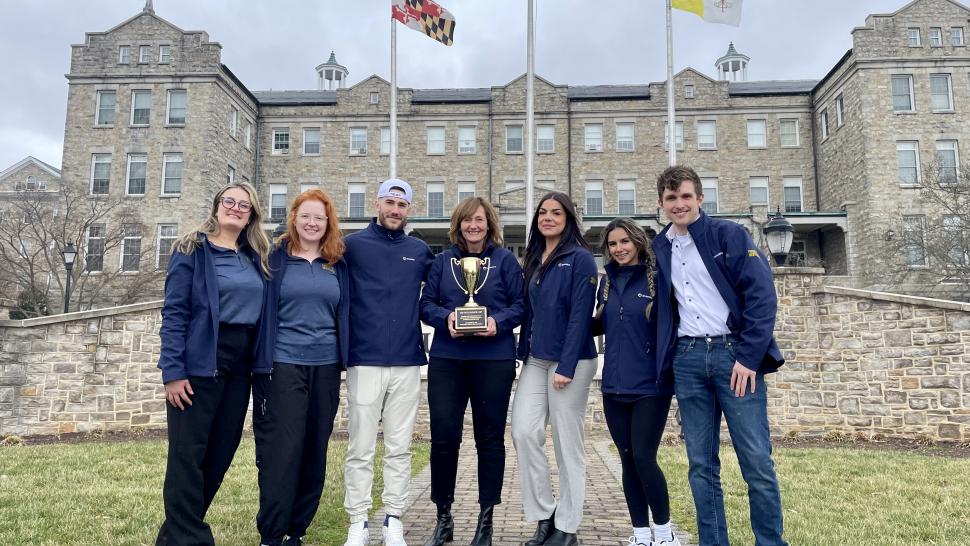
Humber College students finished first and second in a competition that challenged them to process a simulated crime scene.
Students from Humber’s Forensic Identification program traveled to Maryland in the United States on February 25 to compete in the Robert Fram CSI Challenge. Humber sent two teams to take part in the competition.
The College’s two teams were T.O. Trio, comprised of students Nick Popov, Cora Pouliot and Romina Saramout, and InvestaGators, which was made up of students Victoria Purnwasi, Ryan Trenton and Megan MacNeil. The two finished first and second, respectively, out of the 18 teams that entered.
They were led by program coordinator Debbie Harris and faculty member Mike Gamble.
Pouliot said taking part in the challenge was an unforgettable experience.
“Not only has this opportunity expanded my knowledge and passion for the field of forensics but with it I was able to form great friendships and memories that will last a lifetime,” said Pouliot. “Aside from our successful outcome, the opportunity to challenge ourselves and utilize our learned knowledge in such a unique situation felt especially rewarding. All six of us worked exceptionally hard both in training and in competition and our success was well-earned. However, we could not have succeeded without the profound support and guidance from our program’s faculty and professors.”
For the challenge, the Mount St. Mary’s Criminal Justice Association’s officers and the Frederick Police Department created a realistic crime scene investigation that tested the students’ abilities at critical thinking, teamwork, crime scene proficiency, forensic knowledge, and collegiality.
"The Robert Fram CSI Challenge was an amazing opportunity to further develop the foundational skill set that the Forensic Identification program offers,” said Purnwasi. “Weekly training and practice with the faculty and the team was not only informative and constructive but also a lot of fun. Now I have more confidence in my abilities and have gained great experience in team building and application of knowledge. Accomplishing our goal and measuring up against schools across North America leaves me with no doubt that this program and this extracurricular opportunity has set me up for future success in the field of forensics."
The challenge started with each team receiving a kit for collecting, preserving, and identifying evidence. Teams then received a packet of instructions with information concerning the call to service they were investigating. This was followed by an oral briefing where additional questions could be asked.
All teams were sent to their respective crime scenes simultaneously and, from the time they arrived, they had 50 minutes to process the scene and interview witnesses. The competition’s judges, who were made up of Frederick Police Department crime scene investigators, were at the crime scenes to observe and grade the teams.
When the time limit had elapsed at the scene, the teams had to take their written materials, designated evidence, photos, sketches, and other information to adjacent rooms for completing the final phase of the challenge. Each team had to complete a final report of their crime scene investigation and submit it for judging.
Teams also submitted a rough and final sketch of the crime scene and evidence that was collected. The teams also had to show the judges photographs that were taken during the process and were tasked with explaining why and how they were taken. Teams had 50 minutes to complete this phase of the investigation.
Humber College is the only college in Ontario to offer a Forensic Identification program.